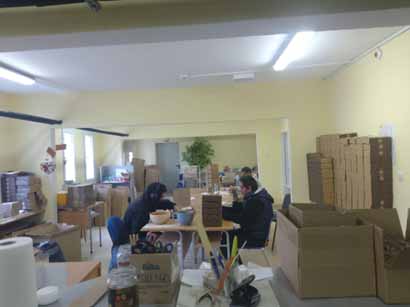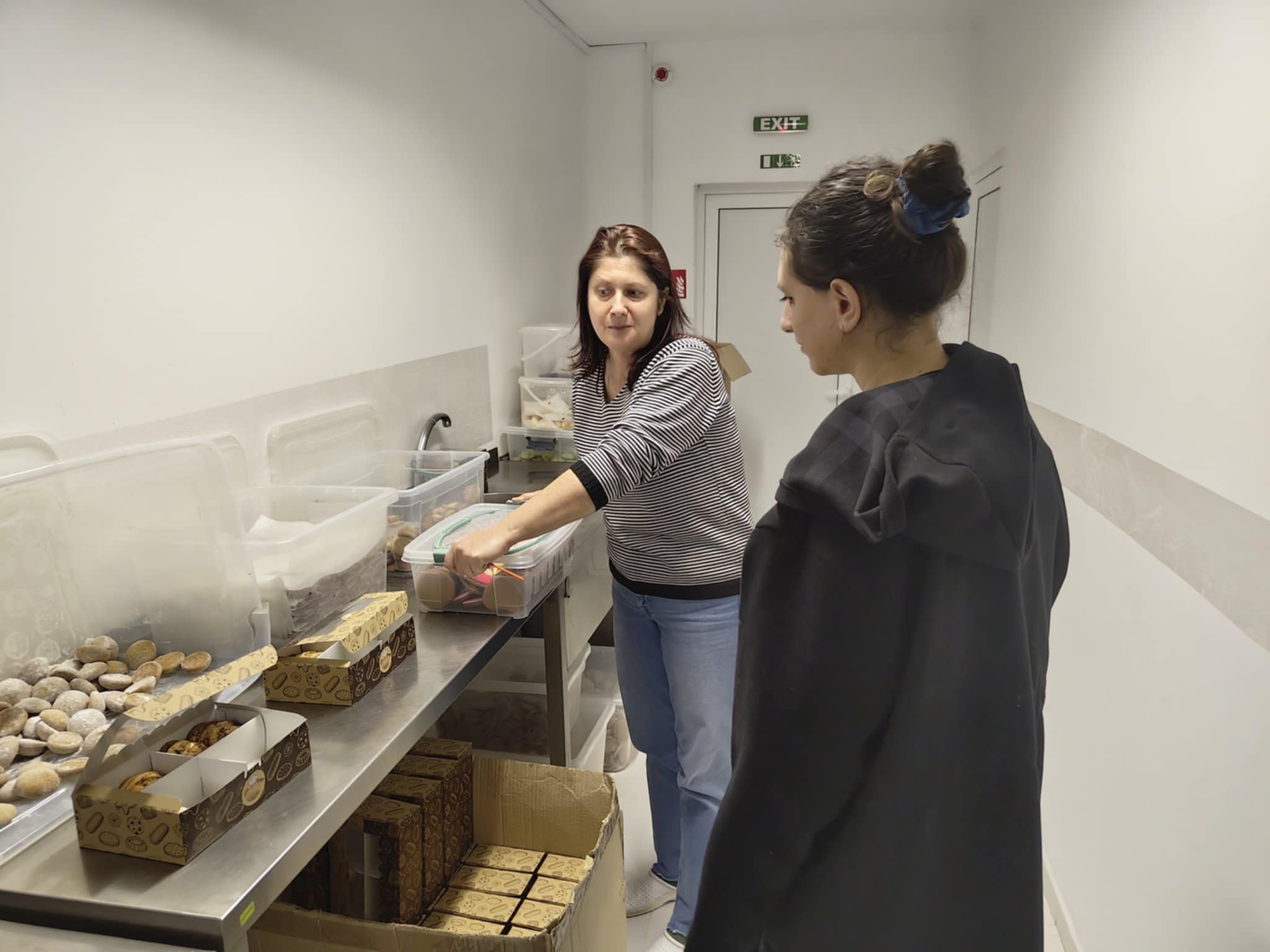“The cookies”
In the heart of Kazanlak, Bulgaria, a small bakery is doing more than just producing appetizing biscuits. It’s creating job opportunities, improving lives, and redefining what it means to run a business. “The cookies”, one of the few entreprises of such kind in Bulgaria, blends passion for baking with a mission to empower young people with disabilities. By tasting their treats, you will feel not just the flavor of quality ingredients, but also the spirit of positive change and community impact.
Here’s how they’re making a difference, one biscuit at a time…

First of all, let me tell you a bit of the history of this inspiring place that was born only 4 years ago.
In Bulgaria, opportunities for young people with disabilities vanish the moment they turn 18, but one woman dared to long for something bigger. Maria Gineva dedicated herself [tot years] to running an association for children with disabilities named “Future for Children”. Over the time, she watched these children grow, knowing that the support they relied on would disappear as they reached adulthood—leaving them and their families to navigate an unforgiving system alone. Indeed, in Bulgaria, laws are in place to protect people with disabilities only once they are employed, particularly by making it difficult to terminate their contracts. However, these regulations do not guarantee their initial hiring. As a result, many employers remain hesitant to offer them job opportunities in the first place.
Determined to change this, she conceived a bold idea: a social enterprise that would not only sustain the organization’s mission but also provide employment and dignity to these young adults. Through her vision, The Cookies was born, proving that every human potential deserves to unfold, regardless of societal barriers. Eventually, for her resourcefulness Maria Gineva was recently awarded by Forbes Bulgaria with the “Audience Choice” prize.
At its inception, the social enterprise offered three main services: crafting hand-made souvenirs alongside a laundry and cooking service. Despite its impactful mission, The Cookies operates without financial support from the local municipality or government. Instead, it relies heavily on subscriptions and the generosity of its supporters to sustain its operations. The only form of assistance provided by the municipality is the use of a structure—a space that once served as part of a kindergarten but had remained unused due to a decline in enrollments.
One of the most cherished aspects of The Cookies is the monthly subscription box they deliver to their supporters. Each box contains four different types of biscuits, carefully crafted and varying each month to keep things fresh and exciting. Adding a touch of creativity, every box also features a special themed biscuit, decorated to reflect the essence of the current month. For instance, October’s box included a tea cup-shaped biscuit, capturing the cozy essence of cool autumn mornings, while November’s featured a mushroom-shaped biscuit, symbolizing the beauty of fall landscapes in the woods. To make the experience even more delightful, each box comes with small, thoughtful gifts, such as bags of pumpkin spice or herbal teas. At the heart of it all is their signature biscuit—a delicious gingerbread and cinnamon treat that has become a beloved hallmark of their enterprise.

I had the privilege of volunteering at The Cookies, an experience that left a lasting impression on me. From the moment I stepped inside, I was struck by the serene and welcoming atmosphere. It felt like a genuinely pleasant place to work, thanks to the kindness of the team. The challenges of working with young people with special needs were evident, but so was the exceptional support provided by skilled educators, teachers, and pedagogues who ensure everyone is cared for and included.
One of the most inspiring moments was meeting the chef, who is blind and she expertly measures ingredients using a special talking scale. I also met Alex, a new hire with mild autism, passionate of music and videogames, who shared that the thing he prefers the most is working with computers and printers. Another volunteer proudly showed me a video of himself singing with a famous Bulgarian singer during a summer festival.
This enterprise is not just a workplace—it’s a vital hub for socialization. For many of these young adults, it’s one of the few places where they can connect with others after leaving school, especially as not all of them continue to university or complete secondary education.
Ylenia Majo

